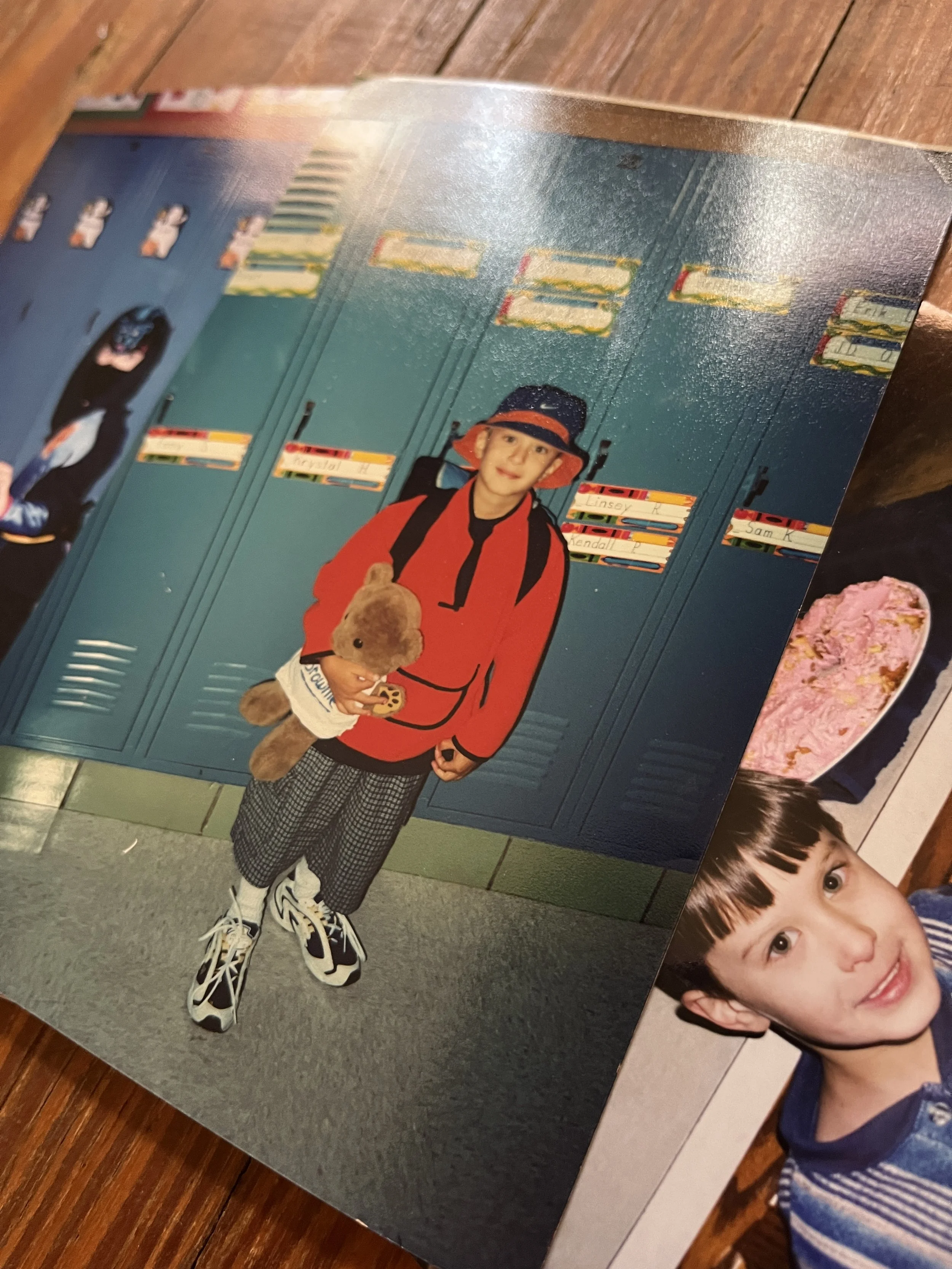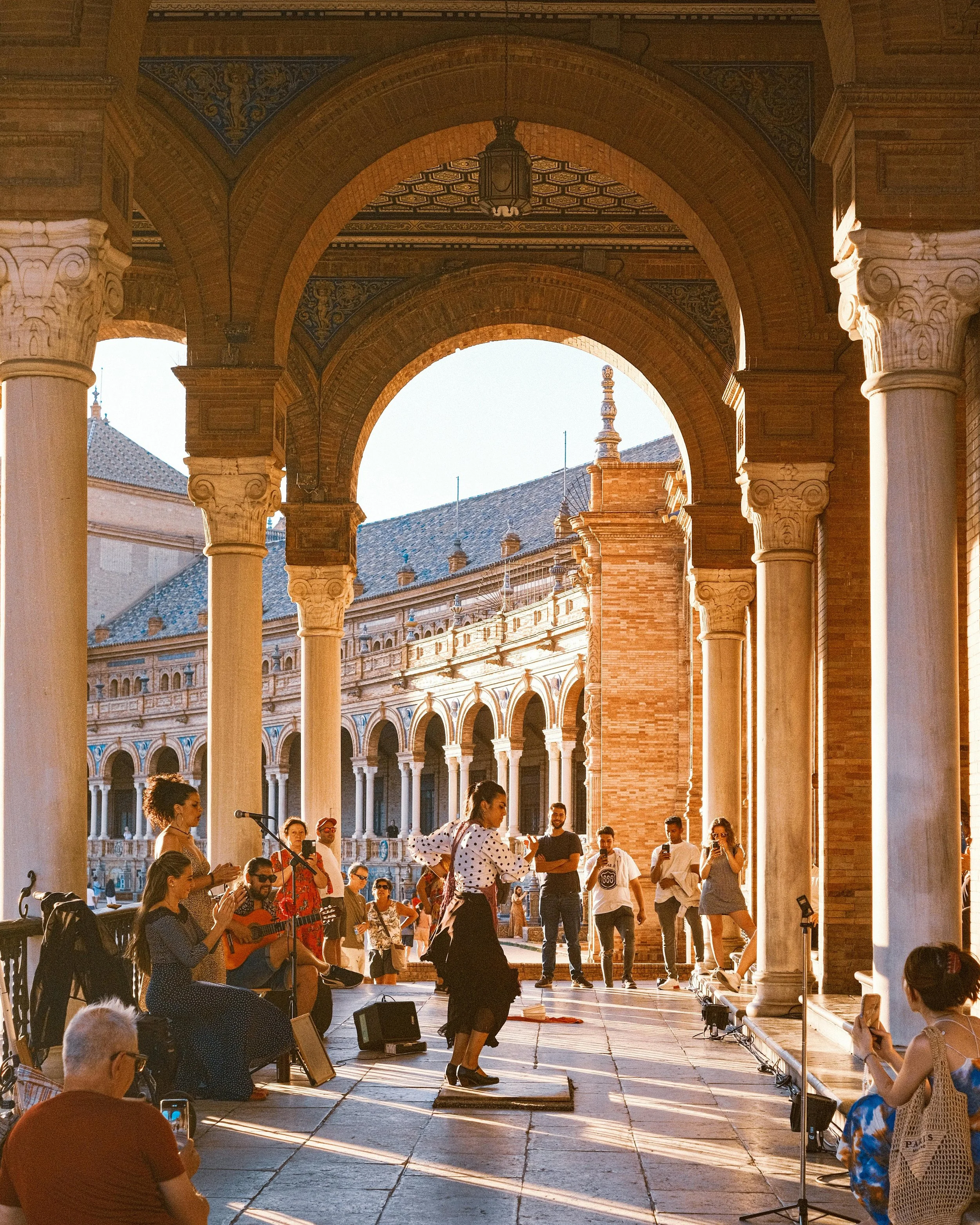A message to the introverts…
I must have been around the age of five…
The classroom lights above me buzzed with that kind of fluorescent brightness that felt damaging to the retina. In front of me on the desk was a sheet of paper with thick blue and pink guidelines helping me learn how to write.
A call from the teacher rang out through the room.
Cheers erupted as my classmates raced to the story-time rug in excitement, their sneakers squealing across the tile floor.
For me, the noise faded to a distant echo… I remained at my desk, unhurried, meticulously shaping each letter, pen-stroke by pen-stroke.
A shadow soon slid across my page—one of the assistant teachers approaching me with a playful kind of urgency:
“Come on,” she teased. “It doesn’t have to be perfect.”
Without hiding my disdain, I looked up at her with a raised eyebrow. To me, each small detail was important, and it was imperative that I was able to take my time…
I’m very grateful to say I was well cared for growing up. I was raised by extraordinarily loving parents and three older sisters on a small farm surrounded by corn and soy fields. Perhaps unsurprisingly, this humble rural upbringing shaped me to be more of an introverted child—an observer—attuned to the patterns of the natural world and sensitive to the stimuli of a busy society.
Quiet, gentle, and empathetic by nature, I often preferred to absorb the world around me rather than speak. In school, I often lost myself in the fine details of a task for hours, developing a keen eye for artistic beauty. I also found myself to be deeply empathetic, attuned to the hardships of others and quick to offer a listening ear.
This type of temperament, however, brought its challenges.
Growing up in the United States, I was submerged in school systems that prized competitive behavior—boldness, boisterousness, and loudness—which greatly contrasted my naturally quiet and gentle demeanor. I was often left feeling dismissed or overlooked, teased or bullied, and too easily labeled with an “attention deficit” or simply as “slow.”
I also found it difficult to draw emotional boundaries. My deep sense of empathy sometimes pulled me toward those who, looking back, may not have been the most wholesome influences.
So, without healthy ways to express my finely-attuned emotional receptivity, nor tools to cope with the chaos of the surrounding world, I began to pull back inside myself… A subtle sense of dissociation emerged, and I began to develop a subconscious shield to protect myself from the pain I had been enduring.
As I grew older, however, I gradually learned to re-shape what were seen by others as “deficits” as my greatest strengths. I slowly learned to trust myself, find confidence, and open myself back up to the world around me.
I was learning the art of moving at my own pace, taking my time.
Shortly after I began middle school, I started practicing a Japanese style of martial arts and was introduced to anime and manga. Although I didn’t realize it at the time, these influences planted within me the early seeds of Eastern thought. And looking back, I can see that I was likely drawn to Japanese culture for its appreciation of a more introspective and intentional way of being, much like my own.
Then, in high school, I read the book that became the intellectual and spiritual launchpad for me:
Siddhartha by Herman Hesse.
As I turned its pages, I was struck by the book’s gentle wisdom. It wasn’t some kind of action-packed drama that begged for my attention; rather, it talked about concepts like self-discovery, mindfulness, and compassion. Its messages affirmed me that listeningto others and being attentive to the fine details of life were valuable skills that should be embraced. It also invited me to honor my own journey and to discover what truly matters beneath the constant noise and motion of the world.
From reading Siddhartha, self-understanding and acceptance began to take root.
For the first time in my life, I began to find words and ideas that helped me accurately describe my own inner experiences, propensities, and yearnings. It slowly dawned on me that there were not only other people like me in the world, but entire cultures who thought and lived as I did—quietly, simply, and intentionally.
I was coming to understand that my gentle nature was not a flaw or weakness, but my greatest strength.
I began to feel that I could slow down, be myself, and take my time.
My confidence grew as I entered my college years.
Although I thought that I was taking going to be a medical doctor because it was a “practical” career choice, my core interests kept pulling me in a different direction. I found myself increasingly drawn to the arts and social sciences, regularly skipping my math and statistics classes to attend ones on philosophy and psychology.
I trained in the medical field for several years, graduated with my bachelor's degree, traveled, and went through various personal trials and explorations. Yet, all that time, I kept being called back to the inner world of the psyche. There was something there that fascinated me that I couldn’t ignore, and I eventually found my way back to the helping professions.
Finally, with some guidance and prompting from my loved ones, I settled into my current path of mental health counseling.
For me, counseling is a heartfelt calling—a true vocation. It gives me the space to use and express my most natural qualities: gentleness, kindness, and introversion. Now, the very traits that once felt like weaknesses have become my greatest strengths, and I feel grateful every day to be able to help others while making a living simply by being myself.
Funnily enough, since I’ve become comfortable in my introverted nature, I’ve actually started leaning a lot more toward being extraverted.
Nowadays, I gain a great deal of satisfaction from engaging with the world around me—laughing, joking, and exploring. I’ve become fascinated by finding different avenues of expression like learning new languages, playing music, writing essays, sharing my voice. This is primarily why I write on Substack and record YouTube videos—to test the limits of my expressive capacities while offering something valuable to those around me.
I’m learning and growing every day, and I still get self-conscious at times. But to reach the point I’m at now, I had to fully embrace my introverted nature. As the great psychologist Carl Rogers famously said, “The curious paradox is that when I accept myself just as I am, then I can change.”
Most recently, I’ve found myself relating closely with the cultures of Southern Spain—open, warm, expressive, and friendly.
“No hay prisa,” as the Spaniards say—there’s no rush.
When I think back to that shy, younger version of myself in the classroom, I’m fascinated by how easily we, as a society, overlook the small, beautiful details of life in our pursuit of speed and constant productivity.
I don’t believe humans are meant to move so quickly all the time, and the evidence for this is clear. We now know scientifically that chronic stress is one of the leading causes of illness in the modern world: prolonged tension in the body and mind inevitably gives rise to disease. As children, we understand this intuitively, but that wisdom often gets buried beneath layers of cultural conditioning.
A major part of my own personal transformation came from learning to relate to other cultures of the world, particularly Japanese, Indian, and Spanish.
By looking beyond our own borders, we can discover new ways of being that nourish our health and well-being. Those of us in the United States, I believe, could benefit greatly from taking note of these traditions:
From Japan, we learn intentionality and respectfulness;
from India, introspection and spiritual depth;
from Spain, slowness and expressiveness.
And in seeking understanding beyond our own cultures, we ultimately come to know our own more deeply. We become more healthy, integrated individuals.
All in all, I write this article in hopes that other more quiet, observant, introverted folks out there might find a sense of solace from my words. To these individuals, I’d like to offer a few simple reminders…
Don’t listen to the noise of the world.
Be your quiet, introverted self. Embrace your nature. There’s nothing wrong with you. You’ve simply been born into a society that over-prioritizes performance.
Be boring. It’s okay if people perceive you that way. Let them. Eventually, they will recognize the value in who you are. What the world needs is less performance and more realness.
Go slowly. There’s nowhere to go anyway. The only thing to rush toward is our eventual grave, so we might as well enjoy our lives.
Relax. Reflect. Meditate. Taking time for stillness and silence is a necessity. This is when the brain undergoes a process called memory consolidation, in which important information is integrated and outdated material is released. When the turmoil of the mind finally settles, you might find that a vision begins to emerge in your mind’s eye.
Move forward steadily and persistently. Arise. Follow that vision. Take small steps, steadily, toward that vision. In time, the skills that you dedicate yourself to will mature and bear sweet fruit.
Enjoy Life. Enjoy the fruits of your labor. Feel life deeply and fully. Have gratitude for this beautiful experience called “Life” that we get to be a part of.
May we learn to move gently through life, guided by stillness, patience, and the quiet strength within us.
Max Kristopher Komes
www.MaxKomes.com
Max Komes is a mental health professional and philosopher based in Pensacola, Florida. His writing mixes the science of clinical psychology with the spirit of contemplative practice, discussing the timeless themes of compassion, interconnection, and human flourishing.
How You Can Support:
1-1 Session: if you’re seeking personal support or guidance, schedule a free discovery call with Max.
Free Mental Health Resources: if you’re looking for more mental health tools like guided meditations and daily journals, visit my Free Resources Page.
Consider Becoming a Paid Subscriber: if you’ve found my writings to be meaningful to you, consider becoming a paid subscriber. Your support helps me keep creating and sharing. Show your support here.
This writing is for educational purposes only and is not a substitute for professional medical advice, diagnosis, or treatment. Always seek the advice of your physician or other qualified health providers with any questions you may have regarding a medical condition. If you have imminent health concerns, please call 1-800-NAMI.



